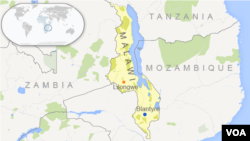The Malawi Law Commission is considering a new bill liberalizing abortion. Government statistics indicate that 70,000 women in Malawi have mostly illegal abortions each year and 17% of them die in the procedure. The move is garnering mixed reaction from Malawians.
Abortion is currently illegal in Malawi. It is punishable by a maximum of 14 years in jail except in cases where pregnancy threatens life of a woman.
Despite this, women still seek illegal abortion services.
Malawi spends about $1million per year in treating post-abortion complications. The new Termination of Pregnancy Bill seeks to reduce this.
Justice Esmie Chombo, chairperson of the Malawi Special Commission on Review of Abortion Law, said the law would give women more decision-making power.
“We are extending the grounds on which abortion can be procured. If a woman is carrying a pregnancy but the doctor say ‘what you are going to give birth to, is a malfunctioned child that could not be compatible with life’ a women can decide ‘I will give birth or I can terminate the pregnancy,'” said Chombo.
The new law also allows for abortion in pregnancies that result from rape, incest, and defilement.
Crispin Sibande, the national coordinator for the Coalition for Prevention of Unsafe Abortion, told VOA that the new bill is still too restrictive.
“Statistics [from the Ministry of Health] show that 80 percent of women and girls who procure abortion are in permanent relationships or married. [In the new bill] If a person is married can she qualify to procure abortion under rape? If a person is in relationship and having casual sex and then is pregnant… It means that they will not qualify,” said Sibande.
Reverend Maurice Munthali is totally against abortion.
“Abortion can never be allowed from the spiritual point of view because it is a sin. Raping, incest and whatever …but when someone has been conceived that is it. A mistake has been done by the one who was raping. You cannot punish a baby who is in the womb,” said Munthali.
Munthali said the church can only allow abortion where the doctor certifies that the life of a woman is in danger because “this is an illness” and not abortion.
Ordinary Malawians are also divided.
Esnat Lungu, a 24-year-old resident of Chilomoni Township in Blantyre, supports the new law.
“I would say that this is a welcome development looking at the trauma some of these people [victims of rape] go through. Take myself for example, if I would be raped, I wouldn’t want to keep the child because every time I look at the child I would be reminded of that ordeal I had to go through,” said Lungu.
But Wyford Banda said the issue is debatable.
“It’s good on one hand because let’s say if the life of a mother is in danger, then obviously you wouldn’t keep the child. But if you are not in that person’s shoes it’s wrong to kill anything that is living,” said Banda.
The new bill is expected to be presented in parliament for deliberations.




